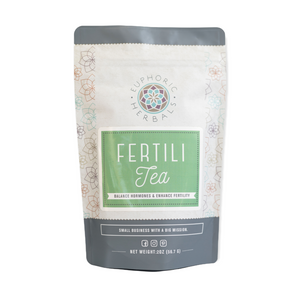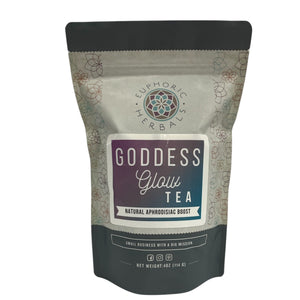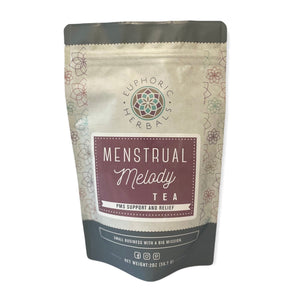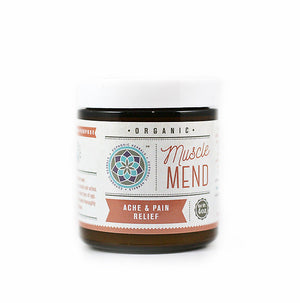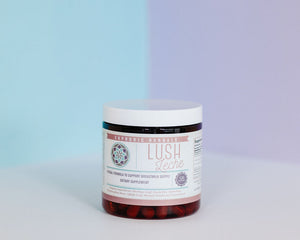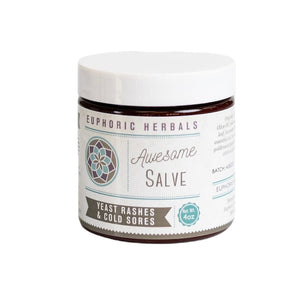Alfalfa is a plant often associated with being used as feed for cows, horses, and other livestock, but it is also an herb with many health benefits.
It's valued as an ingredient in livestock feed because of its protein content and nutrient-dense makeup.
This also makes it beneficial for humans, especially for pregnant women and new mothers.
Here is more about alfalfa and how you can use it to get some key health benefits.
What Is Alfalfa?
Alfalfa (also known as lucerne, buffalo herb, or Medicago sativa) is native to Central and South Asia.
It has been used for centuries in Traditional Chinese Medicine, Indian Ayurvedic medicine, and Native American medicine.
It was even used in ancient Greek and Persian civilizations as food and medicine. (1)
Alfalfa is part of the legume family and is valued by farmers because it can fix nitrogen in the soil and "heal" damaged and depleted soil.
It's also very commonly used as a forage plant for dairy cows and is used to make a nutritious hay for all kinds of livestock. (2)
As far as medicinal uses, alfalfa has traditionally been used for many purposes: digestive health, lowering cholesterol, easing menopause symptoms, increasing breast milk supply. and relieving arthritis pain. (3)(4)
Here is more about the key benefits of alfalfa.
Nutritional Benefits of Alfalfa
One of the things that makes alfalfa so beneficial for humans and livestock is its nutritional profile.
Alfalfa is a very nourishing herb that contains important nutrients like iron, potassium, calcium, magnesium, phosphorus, copper, and manganese.
It also provides a good supply of vitamins A, C, D, E, and K as well as B vitamins. (5)
In addition, alfalfa also contains essential amino acids that the body can't produce on its own and has one of the highest chlorophyll contents of any plant.
It's also full of beneficial plant compounds including saponins, flavonoids, phytoestrogens, coumarins, alkaloids, terpenes, and phytosterols. (3)
Nourishment for Pregnancy and Postpartum
The nourishing properties of alfalfa make it beneficial for pregnancy as well as replenishing the body after giving birth.
Not only does alfalfa have a high quantity of nutrients, they are also the type the body can easily assimilate.
Vitamin K is an important nutrient for pregnant women and for newborns. Since it is a vitamin directly involved in blood clotting, a deficiency can increase the likelihood of hemorrhage. (6)
Alfalfa can be a good source of vitamin K, providing health benefits for mother and baby.
Iron is another important nutrient during pregnancy, but iron deficiency is common in pregnant women. (7)

Taking alfalfa in an Iron Tonic Tea with other iron boosting herbs like nettle leaf and dandelion can support your body during pregnancy and replenish iron levels postpartum.
For overall nourishment during pregnancy or postpartum, alfalfa can be used with other nutrient-rich herbs like red raspberry leaf, nettle leaf, and oatstraw.
Womb Wellness Tea is an herbal blend that features these herbs and helps to replenish your body.
Increasing Breast Milk Supply
Alfalfa has also traditionally been used as a galactagogue (an herb to increase breast milk supply).
The vitamins and minerals in alfalfa are likely one of the reasons it can improve lactation in nursing mothers.
Its nourishing nature helps new mothers to stay healthy and to produce a good supply of breast milk. (8)
Alfalfa also contains phytoestrogens, which may play a role in balancing hormones after pregnancy. (3)
To naturally increase breast milk supply, alfalfa can be taken in a tea blend with other herbal galactagogues or in capsule form.
Benefits of Alfalfa for Cholesterol
Alfalfa also has potential benefits for lowering cholesterol levels.
This is thought to be because alfalfa has a high content of saponins, which are compounds that can bind to cholesterol and decrease absorption by the body. (9)
Although research is still ongoing, a few small studies have found that consuming alfalfa seeds everyday can lower both total and "bad" cholesterol levels. (10)(11)
Easing Menopausal Symptoms
Alfalfa is also an herb that can have benefits for women going through menopause.
It has traditionally been used to help ease menopausal symptoms including night sweats and hot flashes. (3)
Alfalfa contains phytoestrogens that act as a precursor to estrogen and have similar effects as estrogen in the body.
This is likely why alfalfa can be beneficial during menopause when estrogen levels typically drop.
When used in combination with sage, alfalfa can be even more effective at relieving a range of symptoms. (12)
Ways to Use Alfalfa
Dried:
Alfalfa is most commonly used as a dried herb for things like increasing breast milk supply and supporting the body during and after pregnancy.
The dried leaf can be used to make a tea or taken in capsules.
Alfalfa leaf is often used in combination with other herbs like in this tea for increasing and enriching breastmilk or this herbal tea for pregnancy and postpartum.
Sprouts:
Fresh alfalfa sprouts are another way to get the benefits of all the nutrients alfalfa has.
You can eat them raw in salads, steam and season them, or add them to soups and stir-fries.
Seeds:
You can also buy alfalfa seeds and sprout them yourself, especially if you are worried about bacterial contamination.
Extract:
Alfalfa can also be used in extract form. In addition, alfalfa is often used to make liquid chlorophyll supplements because of its extremely high chlorophyll content.
Side Effects and Precautions
Alfalfa is generally a very safe herb to use with few contraindications.
However, its high vitamin K content means it should be avoided by those taking blood-thinning medications because it can cause them to be less effective.
Because alfalfa can have an estrogenic effect, those with estrogen-sensitive cancers should use with caution or avoid altogether.
In the past, the FDA has advised avoiding alfalfa sprouts if you have a compromised immune system because they can easily become contaminated with bacteria.
Consult with your doctor before using if you have any of these health conditions.
Enjoy the Benefits of Alfalfa
Whether you want to try it for nourishment, to increase breast milk supply, or to help with menopausal symptoms, alfalfa is a very nourishing herb with many health benefits.
Its mild flavor allows it to be easily mixed in with other food or used as an ingredient in herbal tea.
Try it out for yourself and give your body some extra nourishment!
Disclaimer: This post is for informational purposes only. It does not constitute medical advice and should not be substituted for medical advice. Please consult your health care provider, herbalist, midwife, or naturopathic physician before taking herbs, supplements, etc. Here's the link to our full disclaimer.






















































